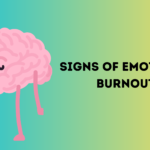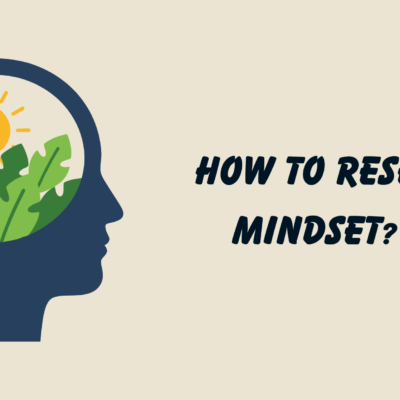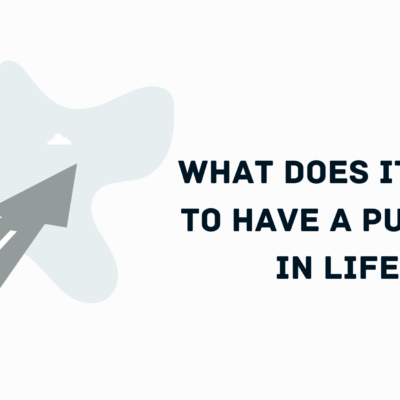How to Find Motivation Again: There comes a time in everyone’s life when motivation seems to disappear. You wake up feeling indifferent, tasks feel like mountains, and even your passions no longer light a spark within you. It’s like walking through life with the volume turned down—everything is muted, heavy, and slow. If you’re stuck in this space, know that you’re not alone. Losing motivation doesn’t mean you’re broken. It means you’re human—and possibly overwhelmed, exhausted, or disconnected from your inner compass.
The good news? Motivation can return. But rather than waiting for it to magically reappear, there are ways to gently nurture it back into your life. This article explores why motivation fades, and how you can find it again—step by step, with compassion and clarity.
Also Read:
1. Understanding What Motivation Really Is
Motivation isn’t just energy or drive—it’s the emotional and mental force behind our actions. It’s what gives meaning to “why” we do things. There are two main types of motivation:
- Intrinsic Motivation: This comes from within. You do something because you want to—not because you have to. It’s driven by curiosity, enjoyment, growth, or purpose.
- Extrinsic Motivation: This comes from external factors—like money, recognition, deadlines, or pressure.
When motivation fades, it’s often because we’re disconnected from intrinsic drivers or overwhelmed by extrinsic ones. We start living to meet expectations, not from a place of desire or meaning. Reigniting motivation begins by reconnecting with why you want to do something in the first place.
2. Why You Might Have Lost Motivation
There are many reasons why motivation slips away. Understanding these can help you approach your journey with more self-compassion and less self-blame:
a) Burnout and Exhaustion
Sometimes you’re not unmotivated—you’re just tired. Emotional, mental, or physical exhaustion can make even simple tasks feel impossible.
b) Lack of Purpose
When you’re not connected to something meaningful, it’s hard to feel driven. Going through the motions can drain your spirit.
c) Fear of Failure
Perfectionism or past disappointments can create mental blocks. If you fear you’ll fail, you may avoid even starting.
d) Depression or Mental Health Struggles
Low motivation is a symptom of many mental health conditions. It’s not laziness—it’s your mind’s way of asking for help.
e) Monotony and Lack of Stimulation
Doing the same thing every day without change or challenge can dull your inner spark.
f) External Pressure
When your goals are driven more by societal expectations than personal desire, they stop feeling fulfilling.
3. Start With Acceptance, Not Force
The first step to finding motivation again is not to push harder, but to pause and accept where you are. Fighting your lack of motivation with guilt or shame only deepens the feeling of failure.
Instead, try saying to yourself:
“I’m not feeling motivated right now, and that’s okay. I’m allowed to feel lost sometimes.”
This gentle acknowledgment can reduce inner resistance and make space for healing and clarity to enter.
4. Reconnect With Your “Why”
Take a moment to ask yourself:
Why do I want to do this? Who or what am I doing it for? Does it align with what I value?
Many times, we lose motivation because we’ve lost sight of the deeper reason behind our goals. Journaling or reflecting on questions like these can help:
- What matters most to me right now?
- What would I do if no one judged me?
- When did I last feel truly alive or inspired?
- What kind of life do I want to create?
Finding motivation is not about getting back to a checklist—it’s about getting back to yourself.
5. Break It Down Into Small, Manageable Pieces
When you’re stuck in a low-energy state, even small tasks can feel overwhelming. So instead of aiming for massive action, aim for micro-movement.
For example:
- Instead of “I have to write a report,” → “I will write the first sentence.”
- Instead of “I need to work out for an hour,” → “I will stretch for 5 minutes.”
Small wins activate your brain’s reward system and create momentum. Motivation often follows action—not the other way around.
6. Create a Routine That Supports, Not Drains
Sometimes we wait to feel motivated to create structure. But often, structure creates the space for motivation to return.
Try:
- Waking up and sleeping at regular times
- Scheduling “focus hours” and “rest hours”
- Building daily rituals that feel nourishing (tea, journaling, walks, music)
A supportive routine acts like a gentle container—holding you up even when your inner world feels chaotic.
7. Surround Yourself With Inspiration
You don’t have to generate all your energy from within. Sometimes, other people’s energy can reignite your own.
Try:
- Listening to motivational podcasts or audiobooks
- Watching videos or movies that spark inspiration
- Reading stories of people who overcame adversity
- Talking to people who uplift you
You’re not meant to do life alone. Let others’ light remind you of your own.
8. Celebrate Small Wins
One major reason motivation vanishes is because we only reward end results. But the brain thrives on small accomplishments.
Each time you complete a step—even a tiny one—pause and acknowledge it.
- “I made my bed today. That’s progress.”
- “I replied to one email. I showed up.”
- “I took a deep breath before reacting. That matters.”
Celebration builds positive reinforcement. It tells your brain, This is worth doing again.
9. Declutter Your Physical and Mental Space
Clutter—both in your environment and your mind—can smother your motivation. If you’re overwhelmed by too many tasks, ideas, or responsibilities, your brain may shut down.
Try:
- Cleaning a small corner of your room
- Making a simple to-do list with only 3 tasks
- Journaling to release mental noise
- Saying no to commitments that no longer align
Clarity breeds motivation. Make space for it to land.
10. Let Go of the Need to Be Perfect
Perfectionism is one of the biggest enemies of motivation. When your brain believes it has to get everything exactly right, it gets stuck in analysis paralysis.
Remind yourself:
- “Progress is better than perfection.”
- “Done is better than perfect.”
- “I can always improve later. I just need to start.”
The goal is not to be flawless—it’s to be human and keep showing up.
11. Shift From Self-Criticism to Self-Compassion
When motivation is low, many people become their own worst critics:
“Why can’t I just get it together?”
“What’s wrong with me?”
“I’m so lazy and useless.”
But self-judgment doesn’t motivate—it shames. And shame kills action.
Instead, try speaking to yourself the way you’d speak to a friend:
“You’re going through a hard time. You’re doing your best.”
“It’s okay to slow down. You’re still worthy.”
“You’ve been strong for so long. It’s okay to need rest.”
Self-compassion turns inner struggle into inner strength.
12. Allow Joy, Even Before the Goal Is Reached
You don’t need to wait until you’re “back to normal” to enjoy life again. Infuse small moments of joy—even if motivation is low.
- Sit in the sun
- Watch a funny video
- Dance to music for 2 minutes
- Call someone you love
- Eat something that makes you smile
Joy isn’t a reward—it’s fuel. It reminds you what life feels like when you’re connected to the present.
13. Seek Support When Needed
If your lack of motivation has lasted for weeks or months, and it’s interfering with your ability to function, it’s okay to reach out for help.
You might be dealing with:
- Depression
- Anxiety
- ADHD
- Trauma
- Grief or loss
Speaking to a therapist or counselor isn’t a sign of failure. It’s a sign of strength and self-respect.
Final Words: Your Spark Is Still There
Even when motivation feels lost, your inner spark is never truly gone. It may be buried under exhaustion, disappointment, or fear—but it still lives within you, waiting to be seen.
Finding motivation again is not about forcing yourself to hustle harder. It’s about gently returning to yourself, reconnecting with what matters, and allowing small steps to lead you forward.
And when you feel like giving up, remember this:
The fact that you’re searching for motivation means you haven’t quit.
The desire to feel alive again is proof that life still wants to move through you.
You don’t need to do it all today—just take the next kind, honest step.






